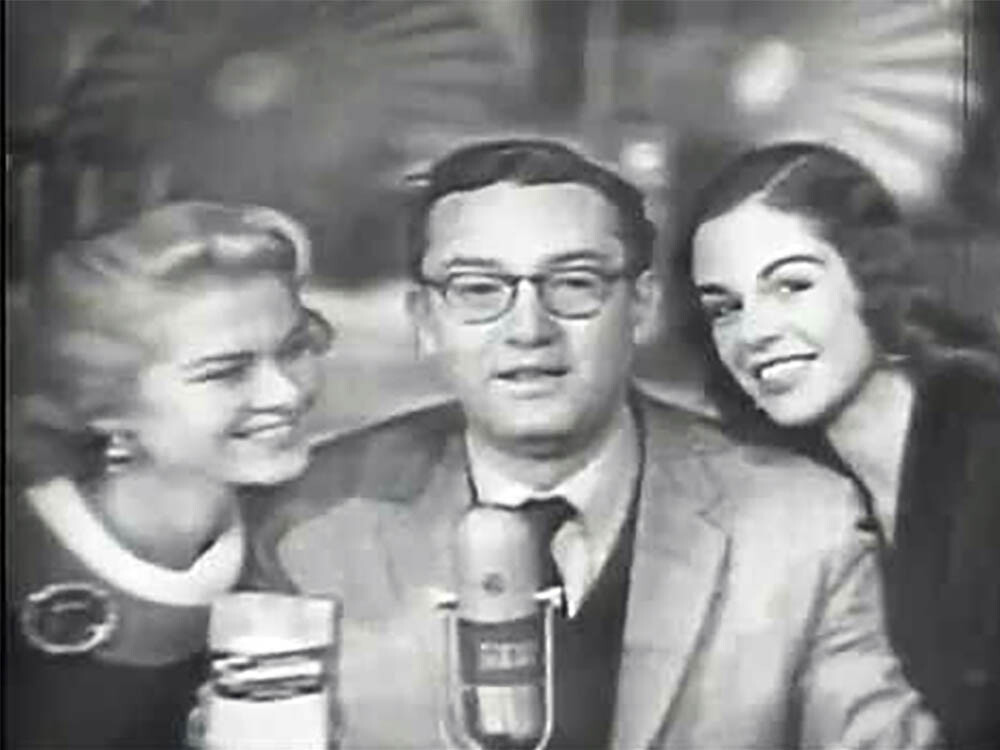5 Things Every Late Night Comedy Host Needs

Welcome to ComedyNerd, Cracked's daily comedy superstore. For more ComedyNerd content, and endless monologues about the Iran/Contra Affair, please sign up for the ComedyNerd newsletter below.
A search for “late-night talk show host” on Ziprecruiter turned up several Host/Hostess positions at Denny’s locations in my community, as well as a startling number of openings for pizza cooks. While there are skills that translate across these jobs -- for example, the ability to handle an unruly crowd at 11:30 p.m. -- online employment sites don’t provide clear job descriptions for those aspiring to be late-night comedy royalty.
Don't Miss
So we here at ComedyNerd Recruiting LLC have developed a hiring guide for future late-night hosts. Here are the five qualities we find essential in potential candidates.
An Antagonistic Streak
OK, so most bosses aren’t looking to hire candidates whose primary strength is ticking them off. And yet, the most successful late-night hosts are the ones who instinctively want to challenge authority.
Take the first Tonight Show host, Steve Allen. Before there was a Dave Letterman, Allen pioneered gags like jumping into a swimming pool full of Jell-O or being lowered into a tub of hot water wearing a teabag suit. That’s exactly what NBC execs didn’t want him to do, according to Bill Carter, author of Behind the Desk: The Story of Late Night.

NBC
The 1950s network suits had envisioned a late-night version of their successful Today Show, complete with breaks for news, weather, and, believe it or not, ski conditions. Allen’s response was, essentially, “Aw hell no,” firing back a grouchy memo letting NBC know he intended to be funny, not newsy, not "weather-y," and certainly not ski-conditiony.
Jimmy Kimmel’s “problem,” according to Carter, was a compulsion to do the opposite of what he was told by higher-ups. An exec wanted Kimmel to wear a tie? He’d appear for his monologue in an open-collar shirt, every-guy white tee peeking from underneath. Kimmel was smart enough to figure out that he now had a bargaining chip -- when his show struggled early, the host agreed to put on the tie. The grateful execs overlooked the show’s stumbles for a while, giving Kimmel time to right his comedy ship.
Bill Maher was never afraid to keep his opinions to himself, eventually irking ABC executives (or maybe it was advertisers) to the point that he had to take his show to HBO.
And of course, there was Letterman, taking every opportunity he could to tweak the corporate overlords at General Electric.
Fighting the Man isn’t a prerequisite for late-night success (we’re pretty sure Fallon wouldn’t have the stomach for it,) but it sure doesn’t hurt.
Super Stamina
“You have to love the grind,” says Stephen Colbert. “You learn to love it. You have to lean into how hard it is.”
If you’re going to host a late-night show, buckle up. You kill yourself to develop a great hour of comedy -- and you get one single day to do it. And the next day, you get to do it all over again. And the day after that. The grind, as Colbert calls it, isn’t for everyone. But some, like Jay Leno, are built for it.

Tonight Show with Jimmy Fallon
Say what you will about Leno’s Tonight Show tenure, but the guy showed up for work. In fact, it was nearly impossible to keep him away, says Carter. He even asked NBC to hire a separate writing and production staff for the eight weeks the show was normally on hiatus -- all so he could work year-round without a break.
NBC insisted that Jay leave the building for a few weeks every year (come on, wouldn’t you?), but Leno’s tenacity epitomizes what it takes to make it.
A Comic Counter-Puncher
Want the gig as late-night host? Your chances of getting hired are better if you have a worthy comedy partner, be it a sidekick or bandleader. In the best partnerships, the sidekick should provide a comic counterpoint to the host’s personality. It’s not enough for sidekicks to stand to the side and giggle -- they have to bring something to the party.
For example, Ed McMahon’s Budweiser-blasted bluster was a great contrast to Carson’s understated chill. Paul Shaffer’s faux show-biz enthusiasm balanced Letterman’s deadpan disdain for entertainment excess.
Conan O’Brien’s outsized silliness was brought back to earth by Andy Richter’s dubious skepticism. Reggie Watts’ cool is the perfect antidote to James Cordon’s corniness.

Late Night with Conan O'Brien
Maybe one of the reasons Leno isn’t remembered fondly is because he didn’t have a worthy comedy cohort. His first bandleader, Branford Marsalis, put Jay on blast for minimizing his role: “The job of musical director I found out later was just to kiss the ass of the host, and I ain’t no asskisser.”
The Ability To Talk To People -- But Not Necessarily IRL
No one was more at ease behind the host desk than Johnny Carson, charming celebrity guests with his wit and California cool. Once the cameras powered down, however, it was a different story. His long-time producer Peter Lassally described Carson as an almost pathologically shy man who was awkward in most social situations.
“I can remember when I was in high school, if I pulled out my old high school annual book and read some of the things, people might say, ‘Oh, he’s conceited, he’s aloof,’” remembered Carson. “Actually, that was more shy. See, when I’m in front of an audience, you see, it’s a different thing. If I’m in front of an audience, I can feel comfortable.”

Tonight Show with Johnny Carson
That social awkwardness was shared by Carson’s protege, Letterman.
According to Carter, Carson once suggested to Letterman that since they both lived in Malibu, they should maybe, you know, get together sometime.
Loner Letterman replied, "And do what?"
The Ability To Be Yourself
This might be the hardest quality of all, and some late-night hosts might try to hide behind their comic persona. “There’s some people who put that facade up because you’re not sure people will like the real you,” says Late Show with Stephen Colbert executive producer Chris Licht.

Late Show with Stephen Colbert
But as Colbert’s show matured, its host “has leaned more into being authentic,” says Licht. “Not everyone looks good when you show them your real self. We have a tremendous advantage in that people like him.”
But even those hosts who put up a false face eventually show their true colors -- whether they want to or not.
“Every host who has lasted for a sustained run in late-night finds out the same thing,” says Carter. “When you come into people's homes, into their bedrooms, every night for weeks and weeks and years and years, you may be wearing make-up, performing an act and exaggerating your character in the endless search of laughs. But sooner or later, in the flood of jokes and conversations and observations on the times and the world at large, you can't hide who you are.”
For more ComedyNerd, be sure to check out:
'The Office': Our Dream Season, Revealed
The Cringey History Of Celebs Covering Beatles Songs
5 Things You Learn Working In A Comedy Club
Top image: Late Show with Stephen Colbert
